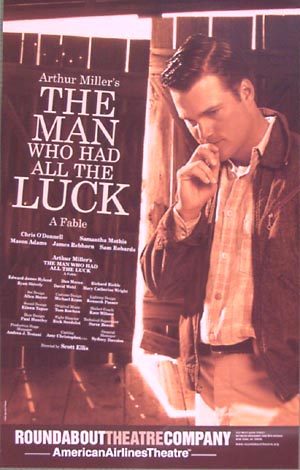Are some people really luckier than others, or is it all in the head? The answer is: both

Are some people really luckier than others, or is it all in the head? The answer is: both.
Lou Gehrig's disease (ALS) is a disease that attacks the nerve cells responsible for movement. Muscle weakness, atrophy and paralysis lead to death without mercy. Victims of this horrible disease can be forgiven for feeling unlucky.
If so, how can one explain the attitude of the person the disease is named after, the great baseball player Lou Gehrig? To the crowd that filled the "Yankee Stadium" he said: "In the last two weeks you have read about the big break that befell me. Today I see myself as a person whose luck has favored him more than anyone else in the world. The "Iron Horse" listed all the blessings that his good fate brought him, a list that was interrupted twice with the words "I'm lucky" and "It's something."
Obviously, luck is a mindset. But is he more than that? To investigate this question in a scientific way, the experimental psychologist Richard Weissman built a "luck laboratory" at the University of Hertfordshire in England. He tested whether the chances of winning the lottery for people who believe they are lucky are actually higher. He recruited 700 subjects, and before they bought lottery tickets they completed the luck questionnaire he had put together. The questionnaire assessed through the subject's self-report, how lucky or unlucky he considers himself. Although those who consider themselves lucky were twice as sure as others that they would indeed win a prize, no differences were found in winnings.
After that, Wiseman asked the subjects to fill out a standard "satisfaction index" questionnaire. In the questionnaire, the subjects are asked to rate how satisfied they are with their family life, their personal life, their financial situation, their health and their career. The results were amazing. "People who [consider themselves] lucky are much more satisfied in all areas of life than those who [consider themselves] unlucky or neutral," Weissman wrote in his charming and one-pointed book "The Luck Factor" (Mirmax Publishing, 2003)* . Does this mindset of contentment translate into real-life results that can be called luck? The answer is yes. And here is the explanation.
Weissman tested his subjects using the "Big Five" questionnaire: five personality dimensions assessing "agreeableness," "conscientiousness," "extroversion," "irritability," and "openness." Weissman found no differences in agreeableness and conscientiousness between the lucky and the unlucky, but he discovered real differences in the degree of extroversion, irritability and openness.
The lucky ones scored significantly higher than the unlucky ones on the extroversion dimension. "There are three ways in which the extroversion of a lucky person increases the likelihood that he will get lucky in some random event," Weissman explains: "He meets more people, he serves as a 'social magnet' and he maintains contact with people." The lucky ones, for example, smile twice as much as the unlucky ones and maintain more eye contact, and this leads to more social encounters that generate more opportunities.
The nervousness dimension assesses a person's degree of anxiety or calmness. Weissman found that the lucky feel half the anxiety of the unlucky - that is, "because the lucky tend to be calmer, they are more likely to notice chance opportunities, even if they are not expecting them." In one of the experiments, Weissman asked volunteers to count the number of photographs in the newspaper. The lucky ones paid more attention than others to the large ad on page 2 where it was written in white Kiddush lettering across half the page: Stop counting - there are 43 photographs in the newspaper.
Weissman found that the lucky ones also scored significantly higher on the dimension of openness. "The lucky ones are more open to new experiences in life... They don't tend to stick to conventions and they like unexpected things," he says. Therefore, lucky people travel more, encounter new opportunities and welcome unique opportunities.
Viewing also plays an important role. Lucky people expect good things to happen to them, and when they do happen, they embrace them. But even in times of trouble the lucky ones turn bad luck into good luck. Take for example one of the oldest ALS patients, Stephen W. Hawking, who writes: "I was lucky that I chose to pursue theoretical physics, because it is one of the only fields in which my condition did not stand as a serious obstacle." Disabled and confined to a wheelchair, Hawking used his fate as an opportunity to change the way we understand the universe, and he did. And that is something.
* In Hebrew, two books by Weissman were published: "Your Luck in Your Hand", Maariv Library Mater, and "Has anyone seen a gorilla here?, Maariv - Echo Artzi - the editors
Michael Shermer is the publisher of Skeptic magazine (www.skeptic.com) and the author of the book "How We Believe".
